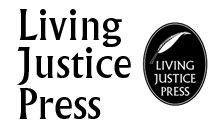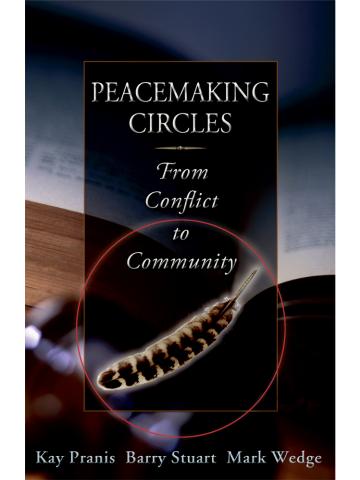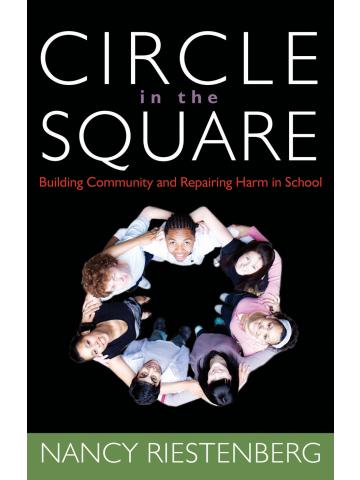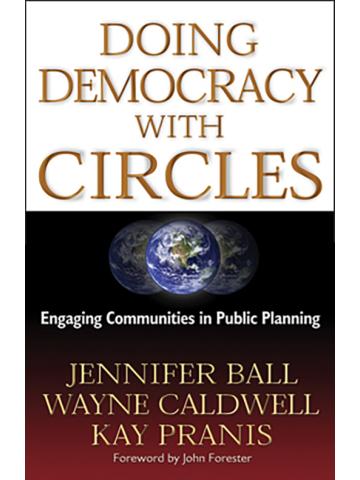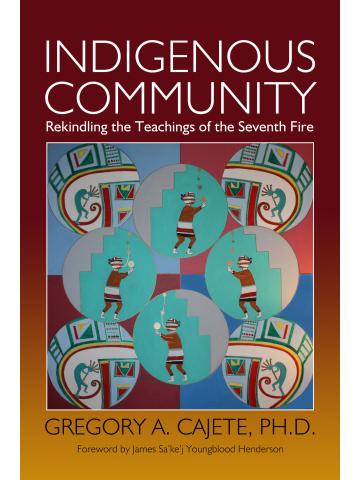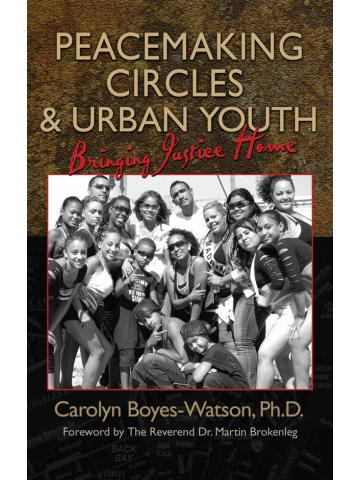
*****IF YOU WISH TO ORDER HARD COPIES OF OUR BOOKS, PLEASE VISIT https://livingjusticepress.org*****
Peacemaking Circles and Urban Youth shows how the Circle process can transform the lives of youth as well as the organizations, social services, families, and communities that support them.
Peacemaking Circles and Urban Youth explores how the Circle process is being used by a remarkably innovative youth center outside Boston. Nearly twenty years in operation, Roca, Inc., works with immigrant, gang, and street youth. Using Circles extensively, not only with youth but also with the families and community as well as throughout the organization, is integral to Roca's effectiveness."Peacemaking Circles and Urban Youth" tells a compelling and inspiring story for any organization or person who works with young people, particularly troubled youth who desperately need community-based support to change the trajectory of their lives.
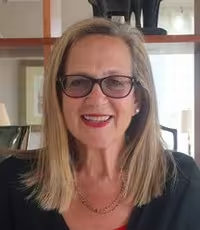
Carolyn Boyes-Watson is the founding director of Suffolk University's Center for Restorative Justice and an associate professor of sociology at Suffolk University. Professor Boyes-Watson has been on the faculty since 1993. She holds a bachelor's degree from the University of Pennsylvania and a master's and Ph.D. in sociology from Harvard University. She lives in Cambridge, Massachusetts, with her husband, Mark.
Praise for Peacemaking Circles & Urban Youth
Youth Today
Cathi MacRae
“The Circle gives me confidence and that safe zone to open up and talk,” says a young Roca staff member. A group of rowdy young Bosnians became quiet for the first time in Circle, sharing experiences of war and weeping as they revealed how drugs help them escape their past. In another Circle, the rigid director of a detention facility abandoned her initial negativity when participants respectfully responded to her criticisms. Then she scheduled Circles for her staff and the incarcerated young women.
For this case study, sociologist Carolyn Boyes-Watson, founding director of Suffolk University’s Center for Restorative Justice, interviewed 43 young people, staff and community partners involved in Roca’s peacemaking Circles, and experienced Circles herself. Chapters explore how Roca uses Circles as a youth development strategy and as space for empowerment, accountability, and healing—and to encourage bureaucratic systems to find their “heart” in cooperation.
The Circle “experience of being in relationships of respect, dignity, and compassion with other human beings” leads to “profound change,” creating a just world where “all young people are valued and belong,” Boyes-Watson writes. This compelling story of a community’s journey toward transformation provokes readers to reconsider their approaches to working with youth.
Barry D. Stuart,
Chief Judge, Yukon (retired), coauthor of Peacemaking Circles
For anyone who seeks to appreciate the difference between restorative justice as a technique and as a way of life, this is a “must read” book. Carolyn Boyes–Watson has captured how lives and organizations change when the values, principles, and processes of peacemaking Circles are immersed into our personal lives and into the larger communities of the workplace and neighborhoods we share.
Nancy Riestenberg
Prevention specialist, Department of Education
This story of the application of the Circle process and restorative principles to a youth-serving organization provides an excellent example of what you do after you find a talking piece. By adding the Circle process to their best youth development practices, Roca started making community, not just connecting to it. Roca’s story has insights for schools, adult-serving agencies, businesses, block clubs, and the faith community. Carolyn tells this story with the eye of a participant: each observation and each anecdote is as fresh as last night’s Circle.
Judge Edward Wilson
State district court judge in St. Paul, Minnesota
The work that is being done at Roca is in the best traditions of Circles, because it gives youth an opportunity to pursue positive life goals. We can only hope that Roca’s example will spread across the country, and other communities will begin to experience the magic of the Circle process, so that they, too, can stem the flow of youth to jails and prisons.
Gordon Bazemore
Author and Chair of the Department of Criminology and Criminal Justice at Florida Atlantic University
Peacemaking Circles and Urban Youth illustrates the power of Circles in a unique environment. It tells the story of a youth development program, known as Roca, that serves “high risk” young people.... Roca uses Circles as an essential, democratic, decision-making process as well as a respectful and powerful way of communicating. At Roca, Circles are a way of “being,” grounded in a restorative justice and youth development philosophy and practice…. Peacemaking Circles and Urban Youth suggests how Circles could transform communities—broadly including schools, neighborhoods, residential facilities, and, as Boyes-Watson shows, even the social services systems charged with assisting them.
